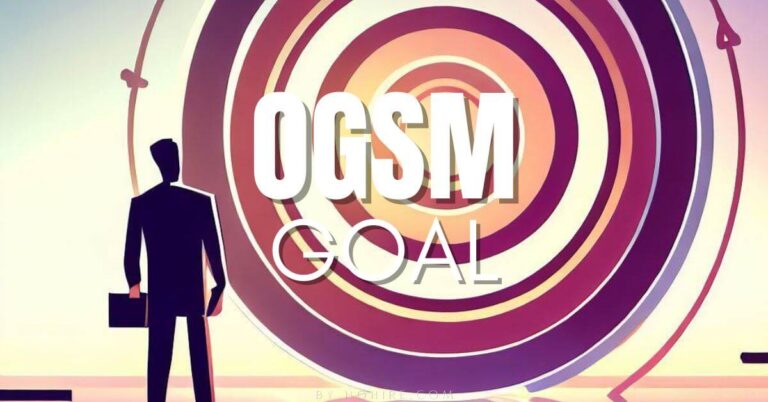Quitting your job can be stressful and nerve-racking. This doesn’t matter how many times have you left a job, you may develop anxiety over quitting a job.
- Your boss can be kind, charismatic, or understanding.
- Your boss can be abusive, unreasonable, or intimidating.
Nonetheless, you’ll need a plan to prepare yourself before resigning, so you can stay calm when quitting a job and get a better one.
Here are the steps to stay calm when telling your boss that you are leaving.
How To Stay Calm When Quitting A Job?
Quitting a job is not glamorous, but if you are working in a toxic work environment.
It’s ok to quit a job you’ve just started, it is especially true if the work environment shows signs of toxic work culture.
Dealing with a bad workplace can be mentally draining and physically taxing, which is the main reason why some employees quit their job without another.
Follow these simple steps and stay calm when quitting a job so you may move on to pursue your goals and dreams.
1. Prepare what you need to say to your boss
Preparation is essential if you want to keep calm when quitting a job.
Create a mind map with a list of items you can say to your boss and a list of items that you cannot say to your boss.
Organize your thought process so that you will not accidentally blurt out information that will make you regret it later.
2. Practice what you are going to say to your boss
Practice, practice, practice.
Say it out loud. Don’t just practice in your head.
Get a friend you trust and practice with your friend what you are going to say to your boss.
If you can’t get a friend to help you out, you can always practice in front of a mirror.
Practice will always make the real thing easier.
3. Plan when and where you’re going to tell your boss
If you are resigning, it is best to have the conversation one-on-one.
Where to tell your boss?
Notice of resignation should be communicated in private. Often employees will choose to drop by the boss’ office and have communication in the office.
But, if your boss is the unreasonable type, don’t have the conversation in your boss’s office.
You may want to setup a meeting with your boss to have the conversation in a café or cafeteria.
You will feel safer having this information told with a lot of passersby around.
Your conversation can be kept private even in public spaces, but your boss will be much less likely to throw a tantrum upon receive of the news that you want to leave.
When to tell your boss?
When you want to tell your boss you are leaving the company, you have to choose the right day and time.
Friday is the best date to tell your boss that you are quitting, as you will probably not meet your boss during the weekends.
Telling your boss on Friday will allow your boss to have time to digest the information throughout the weekends.
End of the day is the best time to tell your boss that you are quitting, as this is the time when you are the most relax, as you are preparing to end work.
Telling your boss at the end of the day will minimize the awkward encounters you will have with your boss after you have informed them of your resignation earlier.
If you are wondering when is the best time, day, and month to resign, you can check it out in my other article here.
4. Talk to the Human Resources (HR) Department if you have one
You may want to approach the human resource department if you are scared of your boss, or if you are afraid that your boss will make a huge fuss when you resign.
Get your resignation letter prepared, and seek your HR’s advice on what you’ll need to do.
5. Relax your mind and body
Being relaxed is to quiet your mind and makes you feel calm and peaceful. When your mind is relaxed, your body will become less tense.
Relax your mind and body a few days before you tell your boss that you are quitting your job.
Relax your mind
- Go for a long warm bath.
- Listen to soothing music.
- Practice meditation.
Relax your body
- Do yoga by joining a yoga class or simply learning from a video.
- Do progressive muscle relaxation.
- Take a walk or do some sports.
- Get a message.
- Drink something warm that doesn’t have caffeine or alcohol.
6. Remember to Breath
Breathing the right way can help you reduce stress and anxiety.
Most people take short shallow breaths. This is especially common when you are under high stress.
You can do this exercise before you approach your boss, or in any situation where you are feeling anxious or worried.
Deep Breathing Exercise
- Get comfortable. Get yourself comfortable by sitting down, or lie on a bed, or on the floor.
- Breathe in. Breathe in slowly through your nose and let the air fill your belly. You will see your chest expand as well. This will take approx. 3 to 6 seconds.
- Breathe out. Slowly and gradually breathe out using your nose. This will take approx. 3 to 6 seconds.
- Repeat. Take three more deep breaths. Do three as a set. Breathe fully into your belly as it rises and falls with each of your breaths.
7. Say what you’ve practiced
Tell your boss you are leaving the job. Don’t rumble or put in a lot of “hum” and “ehh”.
Say what you’ve practiced and say it clearly and politely.
You may feel guilty for quitting the job, but if you think it is the best option for your future career and personal life. You are most likely making the right decision.
Just tell your boss you are leaving.
- Be brief.
- Be concise.
- Be polite.
8. Be prepared for pushback
Your boss will probably not accept your resignation willingly. Your boss will probably try to convince you to stay or even counteroffer you with attractive benefits or promotions.
If you’ve decided to quit your job, it is best to stick to your decision.
Quitting a job is a decision that you’ve made after a long time of pondering and weighing the pros and cons.
All you’ll need to say is, “Thanks, but this decision is final.”
9. Exit when required
If the conversation turns south and your boss becomes unstable emotionally.
Exit the conversation.
If you are in a café or in the cafeteria, simply pay the bills, and off you go.
If you are in your boss’s office, simply thank your boss for their time and leave the room.
Do not keep the conversation going if you think your safety is in question.
On some occasions, your boss will ask you to leave the company immediately.
Simply, honor the request and leave the company with your personal belongings.
You may also want to check the list of things you’ll need to do on your last day of work!
10. Celebrate
Great job! You’ve done it!
Quitting a job is never easy, but you’ve achieved this while staying calm.
It’s time for you to celebrate and pursue your life goals!
Why Do You Feel Anxious Over Quitting A Job?
Anxiety is caused by guilt due to the betrayal and fear of rejection by their boss and coworkers. People feel anxiety when quitting a job because they feel that quitting a job is a personal betrayal of their boss and their co-workers.
This anxiety is usually magnified if your company has a toxic work culture and your boss is abusive, unreasonable, or intimidating.
Even if you want to quit a job you hate, the feeling of anxiety often causes you to second guess yourself, when you are deciding if you should quit your job.
Nonetheless, quitting a job often helps you to have a fresh start in your career, and escape from burnout from work, or boredom after a year of career stagnation.
It’s ‘OK’ to quit a job.
Often, quitting a job will lead you to a better future in your career.
Getting Prepared Before You Quit
Learning new skills can be an exciting and rewarding experience, but it’s important to make sure you are prepared for the journey ahead. Finding a job after you quit is never easy.
Quitting the job ill-prepared can cause more harm than good.
Preparing yourself before quitting can help you stay motivated and keep the momentum going for other endeavors, and there are a few online learning platforms where you can get the best industrial-related knowledge to prepare for your future.
Check out the best online learning platform and find the one that suits you!
Like this advice?
Let us know in the comments below!
Up Next… How much money do you need to be happy? Science has the answer!
Join over 11,000+ achievers who are committed to achieving their career goals!






